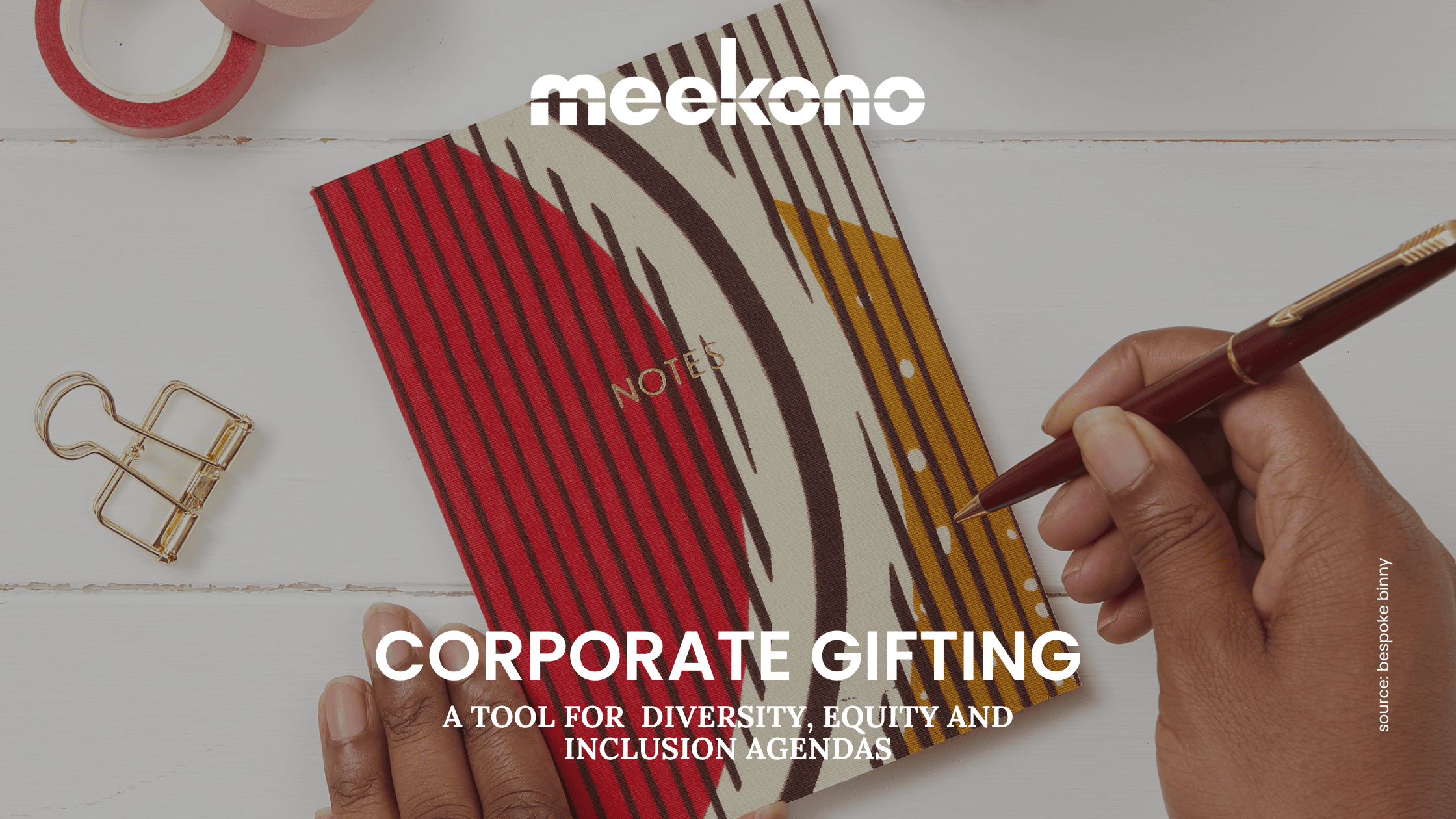Corporate Gifting: An Impactful Tool for ESG, Diversity, Equity & Inclusion
Recent events in the global socio-political environment have had a significant impact on the pace of adoption of diversity policies and brought into stark relief issues of racial injustice and inequality in every sphere of life, that need to be addressed. The corporate world has not been spared. Thanks to the power of social media to highlight issues that would have remained obscure otherwise, public pressure via increased scrutiny from consumers, activists, investors, and employees, has led many companies to accelerate their efforts to adopt diversity practices and accelerate their CSR, ESG and DEI policies.
Companies recognise that they don’t operate in a vacuum and the move towards equity provides an opportunity for them to begin or increase meaningful engagement with their ecosystems. Here are some of the ways companies are adopting more inclusive actions:
Inclusive Actions - How Companies Embrace Diversity
- Diversifying their workforce
- Reviewing hiring processes
- Investing in diversity and inclusion training
- Supporting social justice causes
- Supporting Black-owned businesses by trading fairly with them
Diversifying their workforce
Pledging to increase the diversity of their workforce, particularly in leadership positions. Setting targets to hire more people from underrepresented groups and implementing programs to support career development for these individuals.
Reviewing hiring processes
Taking a closer look at hiring practices to identify and eliminate potential biases. Implementing blind resume screening processes and using software to help identify potential areas of bias in their job postings.
Investing in diversity and inclusion training
Investing in more comprehensive diversity and inclusion training programs for their employees, particularly their managers and leaders. These programs are designed to help employees understand issues of bias and the experiences of underrepresented groups and develop strategies for creating more inclusive workplaces.
Supporting social justice causes
Companies seeking to create an impact in the wider world are also contributing to social justice causes, such as providing financial support to non-profits that support Black communities or partnering with organisations that focus on social justice issues.

All images in this blog are ethically-made hand-crafted products that are available to order with Meekono.com
Supporting Black-owned businesses by trading fairly with them
This is a key area where companies can create real, measurable, sustainable, and immediate impact outside the bounds of their workplaces, whilst also adding value to their own brand, gaining goodwill, and enhancing their reputation.
Supporting Black- and minority-owned businesses by increasing procurement from them is one way to invest in making communities and societies within which companies exist and thrive more equitable. The returns are good and the benefits are mutual. Culturally-rich corporate gifts sourced from minority suppliers are a highly effective extension of a company's marketing and HR strategy, a tangible demonstration of a company’s commitment to value, not only it’s people, but also the wider community.
Additionally, procurement from minority-owned businesses that are in turn ethical and/or sustainable can be one way of contributing to a company’s ESG strategy and passing on best practice on areas like environment-friend production practices. Larger corporates operating in more specialist or large industrial sectors that may struggle to identify Black-owned suppliers should consider corporate gift sourcing as a viable means to diversify their procurement.



Artisanal and handmade gifts are an opportunity to share a story that captures the recipient. Whether it’s the story behind the makers, or the culture influencing the product, companies can use the gifting moment to learn and teach whilst increasing their goodwill and standing. Even a small proportion of a company’s procurement budget can, in real terms, represent a significant revenue boost to a minority-owned business, which will typically be an up-and-coming SMEs.
But sourcing culturally-diverse corporate gifts is a challenge, given they aren’t widely available, especially among most professional corporate gift suppliers. Doing the background work to find suppliers can be labour-intensive with no guarantee of the desired positive outcomes. For the sake of maintaining reputational integrity, it's important for companies to prioritize fair and ethical trade practices.

When sourcing corporate gifts from suppliers claiming to be ethical, companies may still face various risks, including:
Ethical Corporate Gift Sourcing: Risks & Challenges
- Greenwashing
- Poor working conditions
- Quality control
- Supply chain disruptions
- Higher costs
Greenwashing
Some suppliers may make false or exaggerated claims about the ethical and environmental practices of their products. This can mislead companies into believing they are making a responsible choice, when, in fact, they are not.
Poor working conditions
Even suppliers that claim to be ethical may not always adhere to fair labour practices. It is important for companies to do their due diligence and ensure that suppliers are paying workers fairly and providing safe working conditions.
Quality control
When sourcing from small businesses or individual artisans, companies may face challenges in ensuring consistent quality control across multiple orders. It is important to establish clear expectations and guidelines with suppliers to ensure that products meet the desired quality standards.
Supply chain disruptions
Sourcing from small or artisanal suppliers may also carry the risk of supply chain disruptions due to factors such as weather, transportation, or other unforeseen circumstances. This can result in delays or incomplete orders.
Higher costs
Ethical sourcing may sometimes come at a higher cost compared to traditional sourcing methods. Companies need to weigh the potential benefits of ethical sourcing against the higher costs, and determine if it aligns with their values and business goals.
To mitigate these risks, it is important for companies to work with carefully vetted suppliers, establish clear expectations and guidelines, and weigh the potential benefits and costs of ethical sourcing.

All images in this blog are ethically- made, hand-crafted products that are available to order with Meekono.com
Consider partnering with organisations like Meekono that promote fair trading and economic empowerment and connecting with artisans, craftspeople, and local community organisations that in the past have been left out of the market, despite being ideal suppliers of unique gifts and other handmade products.
By pre-vetting and partnering with a wide spectrum of suppliers in different locations, and providing them with the tools, resources, and support to mitigate the risks outlined above, Meekono is closing the gap many buyers face when considering diversifying their sourcing.
Our vetting process reviews suppliers’ trading history, their production processes (including their quality control measures), and employment and compensation policies, to ensure that they align with the values that buyers would require.
.jpeg?1686226801548)

.png?1686227056845)
We support suppliers with a series of toolkits and masterclasses, as well as providing individualised support to set them on a path to success as producers, wholesalers, and business partners.
Buyers have the convenience of engaging on one platform, www.meekono.com, from discovery to delivery, and dealing with Meekono, a UK-registered limited company, as their named supplier. Payments are rooted via Meekono’s payment gateway, and Meekono oversees orders to completion.
This ensures that the entire procurement process is a simple and secure, whilst providing the transparency that corporations are increasingly demanding from their suppliers.
To start on your gift sourcing journey and see the products featured in this blog, visit and register for free as a Buyer on Meekono.com now, or get in touch with our Customer Success team, and we will be ready to answer any questions or concerns you might have and get you going.





